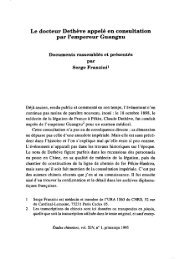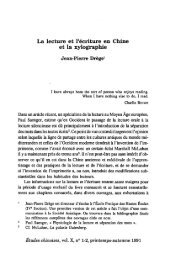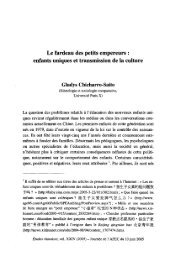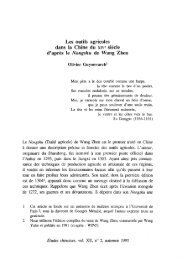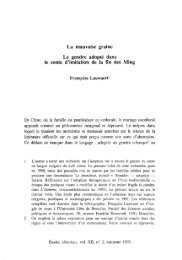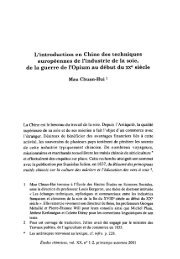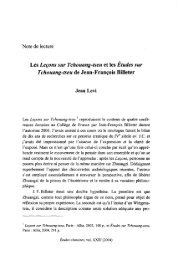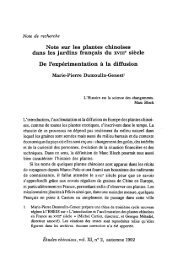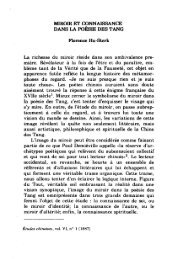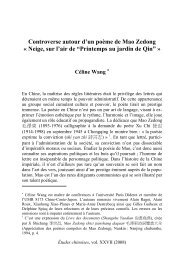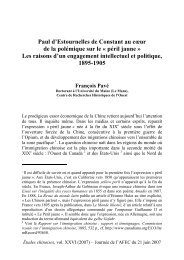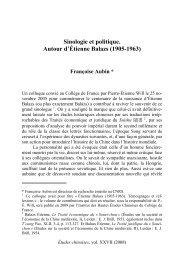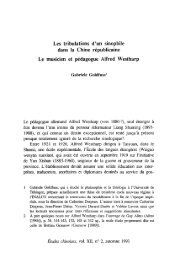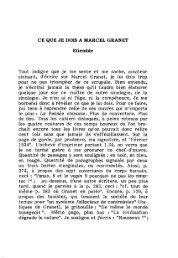You also want an ePaper? Increase the reach of your titles
YUMPU automatically turns print PDFs into web optimized ePapers that Google loves.
Comptes rendus<br />
unwilling to advance large sums to those whose skill (and honesty) might<br />
prove wanting," and at another point (p. 135) he says that scarcely anyone<br />
would argue that Suzhou had a bourgeoisie class that "consciously and<br />
consistently attempted to take direct control of the économie process and<br />
rationalize it to maximize the return on their capital". But if this is completely<br />
true, what kind of hégémonie control did Suzhou possess over "its"<br />
world System? Indeed, not much évidence is presented for the argument<br />
that Suzhou during Ming times managed to get control over preexisting<br />
markets in rice or tea or sait, nor is there much proof that thèse agricultural<br />
products, in as far as they originated in Suzhou's hinterland, were sold<br />
throughout China; other areas in China seem to hâve sold similar products.<br />
As for manufactured products, it is difficult to see the lanterns of Suzhou<br />
triggering off rice production around the Dongting Lake in Huguang, even<br />
if at times Marmé seems to assume there exists such a connection. There<br />
clearly are many other cities, agricultural régions, and merchants groups<br />
outside Suzhou that were successful in one way or another, and within<br />
Marmé's book itself many such counterexamples are mentioned. Whether<br />
"dominance" was crucial in such a structure is problematic. Even the<br />
question whether Suzhou was completely dominant in Jiangnan is doubtful<br />
on the basis of many passages in this very book, and Suzhou's place in, or<br />
trade with the remainder of the Yangzi delta is barely mentioned. As one<br />
example, the cotton cloth merchants guild in Linqing was composed of<br />
merchants from Jiading, Kunshan and Suzhou, not Suzhou alone - and we<br />
are not told whether such a fact matters or not.<br />
Now, Marmé does treat the question on whether there is any évidence<br />
of capitalism is China, and he defines "capitalism" strictly and<br />
narrowly as the reinvestment of économie profit in the productive process.<br />
And while he would agrée with describing mid- and late-Ming Suzhou<br />
préfecture as "proto-industrial," he dénies that such a situation naturally<br />
would develop into industrialization and/or capitalism, despite its unfortunate<br />
name. This is not an unreasonable position to take, perhaps; but I am<br />
not sure how it can be squared with Marmé's "world System" approach.<br />
Braudel and Wallerstein, of course, by positing world-economies before<br />
any "pure" capitalist stage, insist on the invalidity of distinguishing<br />
419



